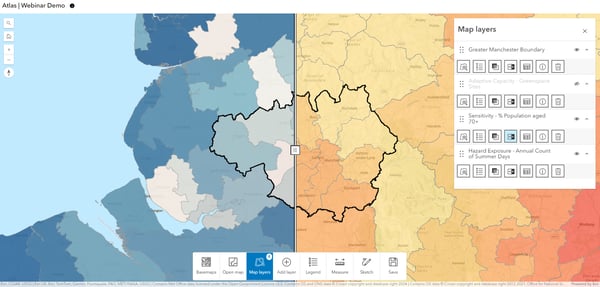UK data centres now classed as Critical National Infrastructure
The government is designating UK data centres as ‘Critical National Infrastructure’ in move to support anticipating and recovering from critical incidents.
From photos taken on smartphones to patients’ NHS records to sensitive financial investment information - is less likely to be compromised during outages, cyber attacks, and adverse weather events.
Putting data centres on an equal footing as water, energy and emergency services systems will mean the data centres sector can now expect greater government support in recovering from and anticipating critical incidents.
The Crowd Strike incident earlier this summer, affecting 60% of GP practices with disruption to software holding patients’ appointment details, prescriptions, and health records showed the catastrophic impact of IT and cyber threats on people’s lives.
Awarding Critical National Infrastructure status underlines the importance of data centres for the government and are measures designed to ensure the UK data industry remains secure and stable.
CNI designation will, for example, see the setting up of a dedicated CNI data infrastructure team of senior government officials who will monitor and anticipate potential threats, provide prioritised access to security agencies including the National Cyber Security Centre, and coordinate access to emergency services should an incident occur.
It comes as the government welcomes a proposed £3.75 billion investment in Europe’s largest data centre, as plans have been submitted to Hertsmere Borough Council for construction in Hertfordshire by data company DC01UK which will directly create over 700 local jobs and support 13,740 data and tech jobs across the country.
Critical National Infrastructure status will also deter cyber criminals from targeting data centres that may house vital health and financial data, minimising disruption to people’s lives, the NHS and the economy.
In the event of an attack on a data centre hosting critical NHS patients’ data, for example, the government would intervene to ensure contingencies are in place to mitigate the risk of damage or to essential services, including on patients’ appointments or operations.
The new protections will also boost business confidence in investing in data centres in the country, an industry which already generates an estimated £4.6 billion in revenues a year.
Peter Kyle, Minister for the Department for Science, Innovation and Technology (DSIT) said, "Data centres are the engines of modern life, they power the digital economy and keep our most personal information safe. Bringing data centres into the Critical National Infrastructure regime will allow better coordination and cooperation with the government against cyber criminals and unexpected events. The huge £3.75 billion private investment is a vote of confidence in those plans and a clear example of my determination to ensure technological advancements are helping to grow our economy and create wealth across the country."
The move will provide greater reassurance the UK is a safe place to invest in data centres to businesses such as DC01UK, the company behind a planning application for an investment of nearly £4 billion in Europe’s largest datacentre in Hertfordshire.
Currently, the UK is home to the highest number of data centres in Western Europe. Boosting the resilience of the sector will help the country top the global leagues for data security and support the government in its mission of achieving sustained economic growth.
Earlier in the summer, DSIT also announced its intention to introduce the Cyber Security and Resilience Bill and strengthen the country’s cyber defences by mandating that providers of essential infrastructure protect their supply chains from attacks.
"We welcome the government's announcement which recognises the critical nature of data centres and digital infrastructure to the economy and society," said Bruce Owen, UK Managing Director of digital infrastructure provider Equinix.
He added, "Equinix is happy to have played an important role in the consultation process to bring about today’s critical national infrastructure status, which we believe will help safeguard the industry by ensuring the stability and growth of the UK and global economy and lay the groundwork for the UK’s bright digital future."






